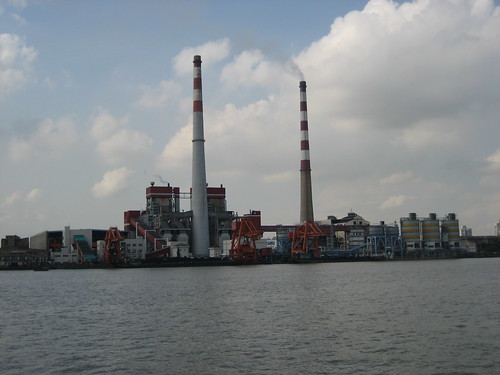In Favor of a Carbon Tax

Smoke Stacks, originally uploaded by richard_munden.
Now that oil prices have fallen again, the Hummers and monster trucks are coming back on the road and Mr. Pickens is delaying his wind power project. What can we do to counter this trend?
I suggest a carbon tax.
The tax would be collected at the carbon source – the wellhead, terminal or mine – and be based on the carbon content of the mined product. No emissions-monitoring is required. Natural gas would effectively be taxed at a lower rate per BTU than coal. The tax could be phased in at a published rate to give fuel users time to implement transitions to less carbon intensive forms of energy. By phased in, I mean start low ($10/ton of carbon content?) and consistently and predictably increase the tax on an annual basis.
A carbon tax lets the market decide which applications can be modified to use non-carbon energy first. As the tax increases, researchers and businesses will find viable alternatives to fossil fuels and more efficient ways of using them.
The difficult parts of a carbon tax would be to make it simple in the beginning without any special favors to any group or industry, and to keep congress
from constantly tinkering with it and giving relief to industries that send significant campaign contributions. There may not be any mechanism for legislating discipline other than the transparency inherent in a tax.
Those consumers who use coal, oil, or gas in ways that do not result in combustion, such as the plastics and chemical industries, could apply for tax rebates.
I think this would be much simpler and easier to administer than a cap-and-trade scheme. It would also provide fewer opportunities for cheating, corruption, speculation, etc. Not that there is any historical precedent for any of those things.
The revenues generated could be used for, among other things, building the infrastructure required to move the U.S. away from fossil fuels including imported oil, and toward an energy infrastructure that is ultimately less expensive than what we have now.
Although this is not an international plan, other nations could enact similar measures. If it provides a demonstrable competitive advantage to U.S. business, you can be sure others will follow.
Some people will object to a carbon tax because they object to any tax. However, there are some jobs best left to government and those jobs need to be paid for. In the long run, taxes are better than endless borrowing.